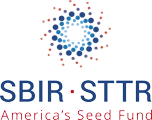SBIR/STTR Training

ABC's of SBIR/STTR: Program Goals, Eligibility, Selecting the Right Agency
presented by Beck Aistrup
The government’s Small Business Innovation Research (SBIR) and Small Business Technology Transfer (STTR) programs make over $2.5 billion in high-risk, non-dilutive capital available to innovative small companies annually. The first step in assessing your technology’s appropriateness for SBIR/STTR is to learn what it takes to be eligible. This webinar covers SBIR/STTR program basics including what they fund, which federal agencies participate, how the money can be used and how to know if you’re a candidate for funding. If you are interested in submitting an SBIR or STTR proposal, you should know that the process is uniquely interpreted by each of the 11 participating federal agencies. Choosing the appropriate agency or agencies to target with your proposal is a critical element in funding success. This session highlights some of the most important differences between agencies, where to gather additional relevant information, and how to integrate it into your decision making.

These videos are brought to you in part through generous support from Maryland TEDCO

SBIR/STTR for Startups: Building a Quality Team
presented by Beck Aistrup
Start-ups often have difficulty putting their teams together for SBIR and STTR submissions. This session covers how to use sub-contractors to fill out your team, how to discuss the current and future build out of your management team, and how to use Advisory Boards and Technical Advisers to strengthen your company and your SBIR/STTR proposals.

Commercialization Planning for SBIR-stage Companies
presented by Michael Kurek PhD
With commercialization and transition plans being a key differentiator in the SBIR/STTR programs, it is important to know what the agencies are looking for and how to go about developing good plans. This session will discuss the expectations that various agencies have for commercialization plans in your Phase I and Phase II projects, where to find cost effective market research resources, what quality “support & commitment letters” are, and more.

SBIR/STTR Registrations: Getting Ready to Submit Your Proposal
presented by Kris Bergman
One of the most critical details in preparing SBIR and STTR proposals has nothing to do with writing the proposal – it’s getting registered so that you can submit (usually electronically) before the deadline. Most agencies advise allowing at least four-to-six weeks to complete the registration process. Further, every agency has its own requirements, typically involving multiple individual registrations. This webinar helps take the mystery out of registrations with tips on how to get started, where to register for what and how to get help.
Presenters:
Becky is an expert in SBIR/STTR funding with BBC Entrepreneurial Training & Consulting, a nationally recognized SBIR/STTR consulting and training firm. Prior to joining BBC in 2012, Becky was the SBIR/STTR Program Director for the Minnesota Science and Technology Authority. Her professional background includes over 20 years of experience working within the medical, biotech, advanced materials and electronics industries, and consulting with technology companies on SBIR/STTR funding.
Kris is Managing Partner of BBC Entrepreneurial Training & Consulting. An expert in grants and contracts management, since joining BBC in 2000, Kris has assisted clients in preparing to receive and manage federal grant and contract funds. This includes advice on financial policies and procedures, DCAA compliance, budget development, indirect cost negotiation, Just-in-Time response, using QuickBooks and preparing for government audits.
Michael is a consultant with BBC Entrepreneurial Training & Consulting. Prior to joining the company in 2001 he held management positions in marketing, sales, and business development for several start-up and early-stage companies in industries such as medical devices, informatics, and research tools. He holds a Ph.D. in Genetics from Florida State University and an M.B.A. from Boston University.
